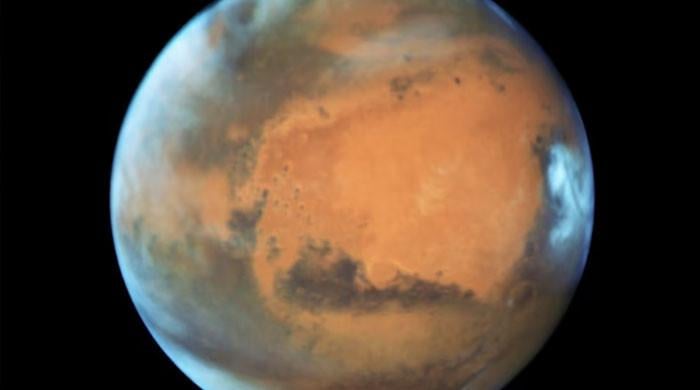Summary:
- Scientists have found evidence of a vast underground reservoir of liquid water on Mars, located between 7.2 and 12.4 miles below the surface.
- This reservoir could contain enough water to cover Mars with an ocean, potentially creating conditions suitable for microbial life.
- The discovery comes from seismic data collected by NASA’s InSight lander and could have important implications for future Mars exploration and colonization.
Scientists have uncovered compelling evidence suggesting that a massive reservoir of liquid water may lie deep beneath Mars’ surface. The discovery, reported by Reuters, reveals that this water could potentially cover the entire Martian surface with an ocean.
The water is estimated to be located between 7.2 and 12.4 miles below Mars’ surface, within fractured igneous rocks. This depth is crucial because it allows the water to remain in liquid form, unlike the colder, shallower layers where it would freeze.
The groundbreaking findings come from data gathered by NASA’s InSight lander, which was instrumental in studying Mars’ internal structure. The lander, which operated from 2018 to 2022, provided crucial seismic data that revealed changes in seismic wave speeds as they traveled through different layers of Mars’ crust. This information was used to estimate the presence of the underground water reservoir.
Vashan Wright, a planetary scientist at the Scripps Institution of Oceanography, explained that the warm conditions at these depths are ideal for liquid water. Wright noted that on Earth, similar environments support microbial life, suggesting that Mars might have once hosted life forms. Michael Manga, a co-author of the study, added that this water could be a remnant from Mars’ wetter past when rivers, lakes, and possibly oceans covered the surface.
The discovery underscores that much of Mars’ ancient water did not escape into space but instead migrated into the planet’s crust. This process, similar to Earth’s groundwater movement, could have occurred during a time when Mars’ crust was warmer. If this underground reservoir is as extensive as the data suggests, it could be equivalent to a 1-2 km deep ocean spanning the entire planet.
While the discovery is exciting for future Mars exploration, accessing this deep water would be a significant challenge. Drilling to such depths is currently beyond our technological capabilities. However, researchers are considering alternative methods, such as exploring regions like Cerberus Fossae, where geological activity might bring this water closer to the surface.
This potential resource could be crucial for future human missions to Mars, providing a key ingredient for long-term settlement. However, scientists will need to address concerns about preserving Mars’ environment while exploring these possibilities.

